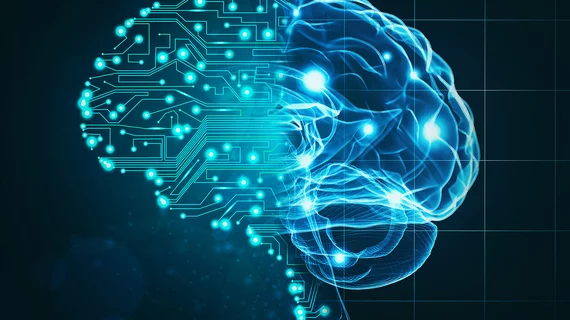RSNA to use annual conference to cultivate machine learning, AI knowledge
The Radiological Society of North America (RSNA) is staying future-focused for its annual symposium in Chicago in November. According to a statement from the organization, machine learning and artificial intelligence (AI) will be playing an expanded role at this year’s conference.
After last year’s debut of the ML Pediatric Bone Challenge, during which more than 250 participants crafted algorithms to predict skeletal age using a dataset of pediatric hand x-rays, RSNA 18 will feature another challenge in which conference attendees will be asked to create machine learning algorithms to help detect pneumonia.
Curtis P. Langlotz, MD, PhD, a professor of radiology and biomedical informatics and the director of Stanford University’s Center for Artificial Intelligence in Medicine and Imaging, said last year’s machine learning challenge made an impact on the existing body of research for skeletal age prediction.
“Data scientists from around the world used the dataset to exceed the performance of previously published AI systems that automatically estimate bone age,” he said in a release from the RSNA.
The 2018 challenge will ask participants to develop tools to identify and localize pneumonia on chest x-rays using an NIH dataset of 30,000 images as a guide. Volunteer radiologists will have annotated each of the images prior to the conference, marking abnormalities and probability of pneumonia in each case. The most accurate submissions will earn a place in the Machine Learning Showcase at RSNA 18, and top entries will share in a prize of $30,000.
“This year’s competition is a lot more image-heavy than in 2017,” Safwan Halabi, MD, a clinical professor of pediatric radiology at Stanford and chair of the RSNA Radiology Informatics Committee, said in the release. “It represents one of the largest uses of patient imaging to date for this type of competition.”
RSNA attendees will also have the chance to participate in the returning Deep Learning Classroom, which allows for less experienced physicians to learn to write machine learning algorithms and expand their knowledge of artificial intelligence.
“The RNSA Deep Learning Classroom offers an opportunity for anyone with a laptop to construct and train an actual computer-vision system based on a neural network in just 90 minutes,” Langlotz said.
The classroom, which drew more than a thousand people last year, will focus more on advanced topics like data augmentation, segmentation and multiparametric classification.
The program allows for people with varying knowledge of AI to participate in programs catered to their knowledge level, Bradley J. Erikson, MD, PhD, an RIC member and professor at the Mayo Clinic in Rochester, Minnesota, said in the release.
“There has been a lot of hype around AI,” he said. “It’s critical that our membership understands how it can work and how it can fail, and the classroom provides an excellent way for us to demonstrate both.”

